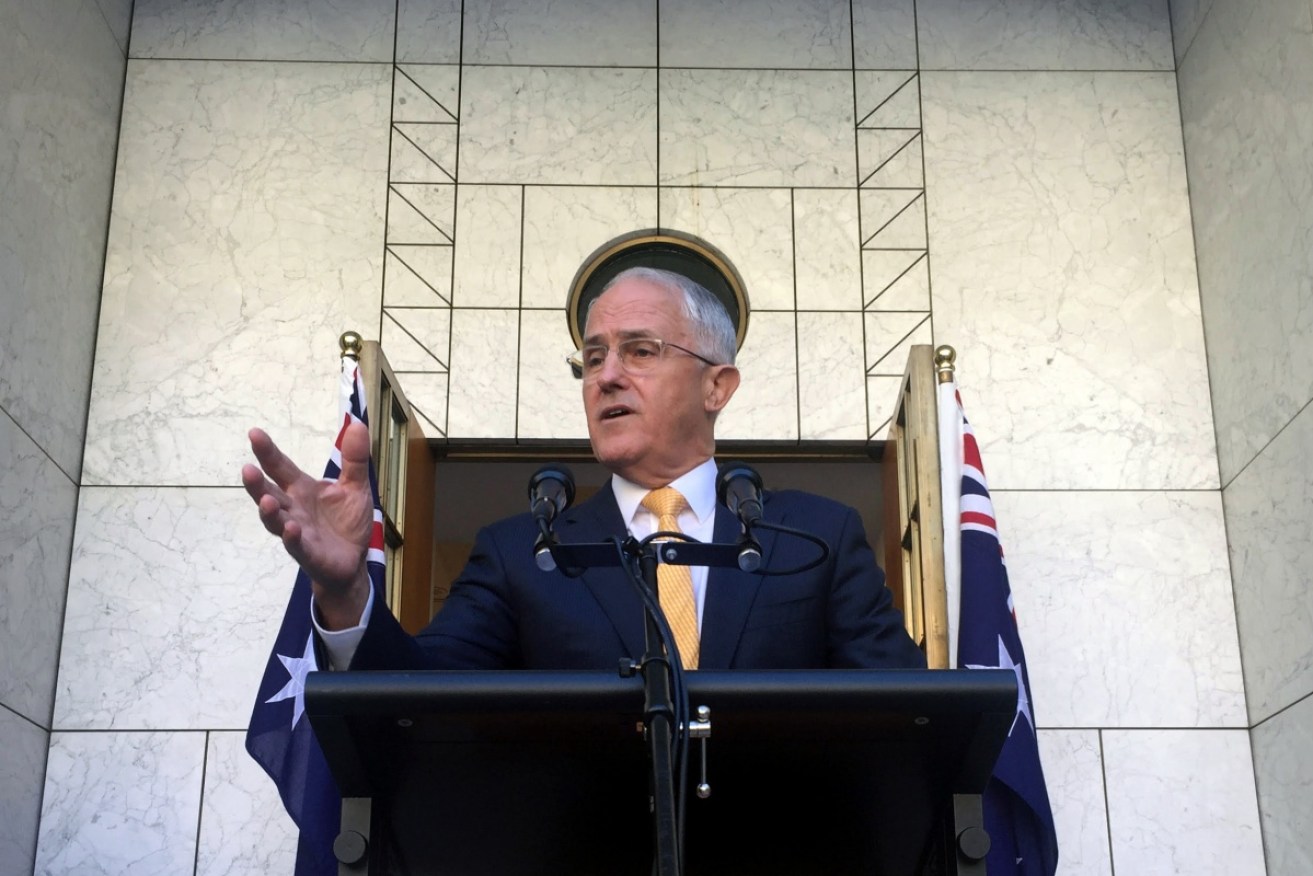All signs point to a post-election ‘borrowing boom’


AAP
Why does Prime Minister Malcolm Turnbull want to pass construction industry reforms badly enough to consider dissolving both houses of parliament?
One reason is pure political opportunism. Mr Turnbull has chosen the only issue the Labor Party cannot back down on as a double dissolution trigger, so as to make it clear to voters that it’s Bill Shorten, not the PM, who has ‘forced’ Australians to the D-D poll.
But that is not to say the economics of the legislation is not important. And the way Mr Turnbull, Treasurer Scott Morrison and Employment Minister Michaelia Cash are out spruiking this “critical reform” hints at what they want to do with it.
• PM Turnbull moves to force early election
• PM dips into negative territory
• Negative gearing proponents’ claims don’t stack up
In short, there is growing evidence the LNP wants to borrow and spend heavily if they win the election, but to get maximum bang for their bucks.
An article in the Fairfax papers last week, which had all the hallmarks of a political ‘drop’, suggested the government wants to borrow very large sums of money while borrowing costs are low, and to use those funds to ramp up its pipeline of infrastructure projects.
To finance this, the government will reportedly issue 30-year bonds for the first time.
Mr Morrison ducked this question during a media conference on Friday, saying only that “when you’re looking at funding infrastructure into the future you want as many options as you can available to you particularly when you’re in a very constrained fiscal environment”.

Infrastructure could be a key plank in the election campaign.
Okay, so 30-year bonds it is. And in the Coalition view (though not in the unions’ view) the most efficient way to spend the money thus raised is through a tightly-policed construction industry.
Constructing a jobs boom
Think about what that means to construction workers themselves, many of whom have seen jobs fall away as the mining investment boom winds down. Mr Turnbull looks likely to tell them at budget time that ‘there’ll be more jobs’, but that pay and conditions in those jobs will be more tightly locked-down by the newly-recreated ABCC.
Remember, too, that there is no shortage of projects on which to spend public money, or which can be kickstarted with a combination of private investment, public investment and government guarantees.
Current estimates for the ‘infrastructure deficit’ sit at around $700 billion, which is not too far off double the current gross federal debt of $415 billion. This is the estimated difference between projects that offer a ‘net present value’ greater than zero and those budgeted for. That accounting term simply means that you’ll get more back from the investment than it costs to make.
Even under former Treasurer Joe Hockey, this kind of reasoning was at work behind the scenes. When he blew out the budget deficit in his first mid-year economic statement, I argued that he was trying to borrow as much as possible at cheap rates before they vanished.
Well, borrowing rates, through the issuing of government bonds, have become even cheaper.
The US 30-year Treasury bond is currently priced such that it will yield around 2.7 per cent over that period. In Australia, the latest 10-year bond auction produced a weighted average yield of 2.79 per cent.

Labor infrastructure spokesman Anthony Albanese: would also be tempted by cheap borrowing rates. Photo: Getty
So a giant bucket of bonds, sold off after the next election, could be the start of a long-term, large scale game of catch-up on infrastructure spending – and all at borrowing costs barely ahead of the inflation rate.
Political problems
The problem Mr Turnbull has in starting such a programme would be two-fold.
First, he would have to convince voters that the ‘debt and deficit’ campaign of the Abbott years was just a bad dream. In accounting terms it was – Australia Inc was allowed to run a ‘lazy balance sheet’ for purely ideological reasons, and watched its physical infrastructure deteriorate at the same time.
Second, splashing money around would bring out the worst in some elements of the union movement – and unlike Mr Shorten, there is little Mr Turnbull could do to contain them in the way that Labor worked with the unions in the historic reforms of the Accord era.
Unless, that is, he had the ACCC and Registered Organisations bills through parliament.
Those laws would be essential for the success of a big borrowing, big spending Turnbull government – if, of course, its wins the double dissolution gamble.









